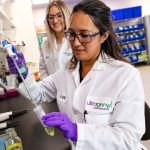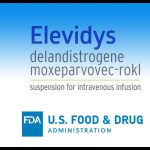FDA Approves Revolutionary Gene Therapies, Offering Lifelong Relief for Sickle Cell Disease

In a groundbreaking move, the U.S. Food and Drug Administration (FDA) granted approval on Friday to two gene therapies for sickle cell disease, marking a significant milestone in the treatment of the genetic blood disorder. Among the approved therapies is Casgevy, developed by Vertex Pharmaceuticals and CRISPR Therapeutics, representing the first-ever gene-editing treatment for a genetic disease in the United States. The second approved therapy, Lyfgenia, developed by Bluebird Bio, utilizes a common virus to deliver genetic modifications to a patient’s blood stem cells.
Sickle cell disease is a rare, debilitating, and life-threatening blood disorder with limited treatment options. Both Casgevy and Lyfgenia aim to address the unmet needs of individuals suffering from this condition. The FDA emphasized the potential of gene therapy in delivering more targeted and effective treatments for rare diseases.
Casgevy, employing CRISPR gene-editing technology, permanently alters the DNA in a patient’s blood cells, providing a one-time treatment that alleviates the excruciating symptoms of sickle cell disease for life. Lyfgenia, on the other hand, uses a virus to deliver genetic modifications to blood stem cells in the patient’s bone marrow, aiming to produce healthy hemoglobin.
The FDA’s approval is based on rigorous evaluations of scientific and clinical data, reflecting the agency’s commitment to facilitating the development of safe and effective treatments for severe health conditions. Evidence supporting Casgevy’s approval involved 44 patients, with the majority experiencing freedom from severe pain and organ damage after treatment. Lyfgenia’s approval was supported by a 24-month study in which 28 out of 32 patients had no sickle cell events following their transplant.
The gene therapies for sickle cell patients represent a significant medical advance, offering hope to those suffering from sickle cell disease. Prices for the therapies have not been released, but experts anticipate them to be expensive. A price tag of around $2 million is considered cost-effective compared to existing treatments, which can cost approximately $1.6 million to $1.7 million over a person’s lifespan.
While the cost is a consideration, the potential for improved quality of life and reduced hospitalizations for patients is a compelling factor. The gene therapies provide a promising alternative for individuals with sickle cell disease, offering the potential for long-term relief and a significant advancement in the field of gene-based treatments.





